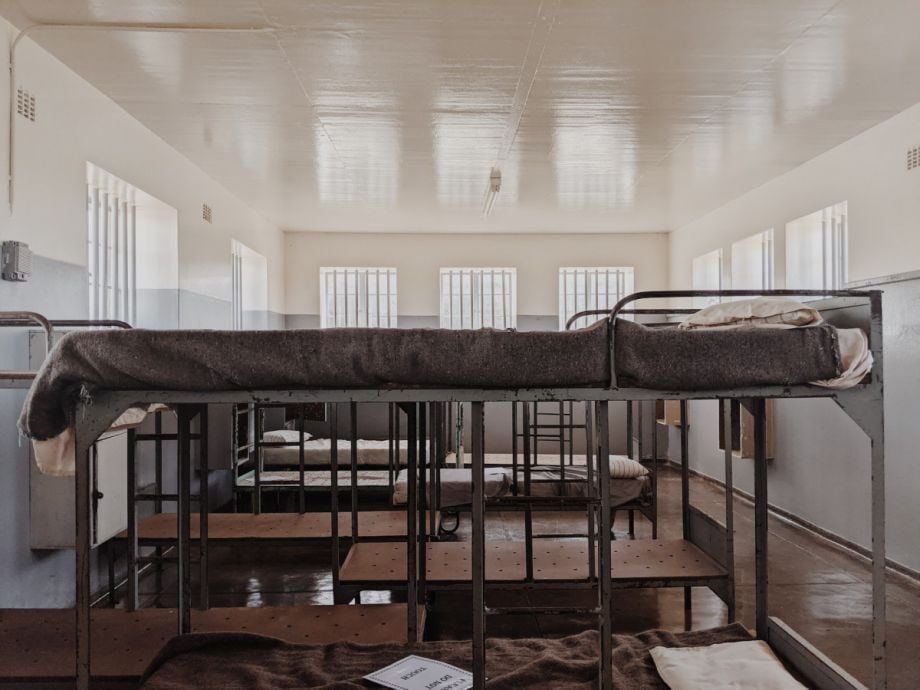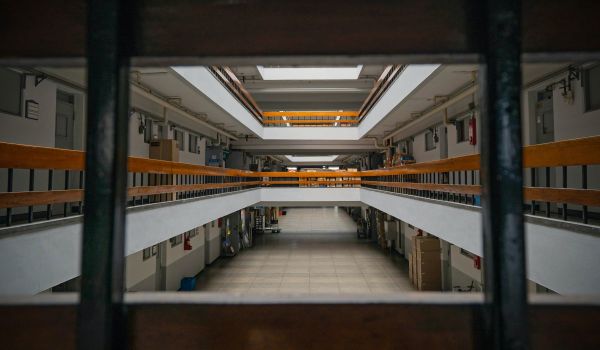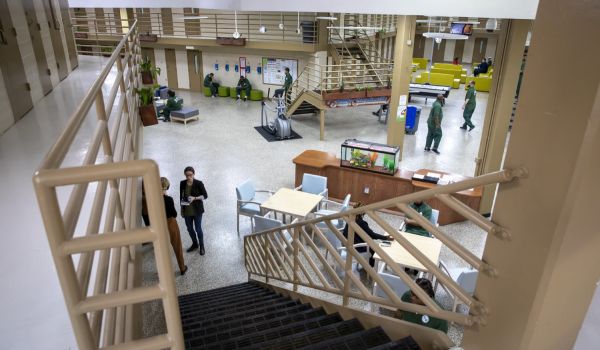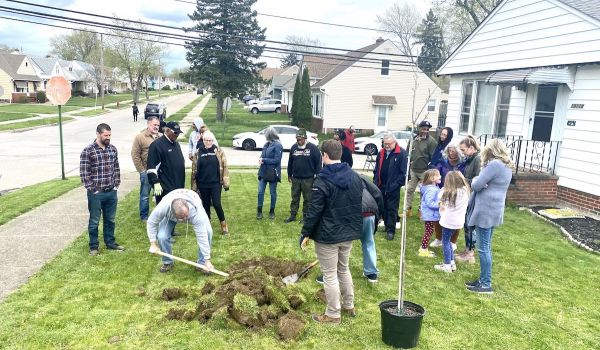The most striking thing when walking inside Bravo Dorm is the tranquility. Incarcerated residents sit on blue plastic chairs quietly reading books, students train on Microsoft Office in the computer lab, and one man kneels on a prayer rug in a designated mediation corner.
The dormitory is at the Everglades Correctional Institution (ECI) and operated by Horizon Communities, a leading developer of faith- and character-based residential communities in several states and abroad.
After years of resistance from prison officials, rehabilitative programs are now being offered in many state-run facilities as a response to punitive mass incarceration. Horizon, which aims to prepare prisoners to live responsibly with others, currently operates at five Florida Department of Corrections institutions with around 150 men in each dorm.
The operating cost for a full residential community is around $55,000 a year, about twice what it costs the department to incarcerate one prisoner for a year. But the program’s cost-effectiveness is just part of the story.
Executive director Nathan Shaidt says the program’s end goal is prison reform.
“The idea is to teach incarcerated people to use socially acceptable behavior in a community that they don’t desire to live in, so that when they get out, they find success in a community of their choice,” Shaidt says.
The Horizon dorm at ECI is situated inside the large prison complex, but to the casual observer it could be confused for a building on a college campus. A colorful mural adorns the front entrance above flowering landscaping. Inside, a community bulletin board informs participants of upcoming events, and inspirational quotes line the walls. “Planet Earth” flickers on one of the two big screen televisions hanging in the open-bay living area.
Horizon employs one civilian coordinator at each institution who comes into the prison every day to bring supplies, council participants and coordinate the volunteers who come to fellowship with the men on weeknights.
“This is a learning environment, first and foremost,” ECI Horizon Coordinator Alan Cohen says of the program. Cohen, an entrepreneur turned humanitarian, has spent the last five years working with hundreds of incarcerated residents on a daily basis.
“If you have guys that want to better themselves and you give them the tools and the opportunity, they will change,” he says. “We have a computer lab, business classes, life skills and vocational training. There’s a waiting list to get into the dorm.”
Cohen intervenes when necessary, but the program is largely peer-facilitated by a diverse group of incarcerated men.
“This is a one-year program and our leadership is selected from the graduates,” he says. “I’ve been in business my whole life, and some of the smartest teachers and best leaders I’ve met have been right here in prison.”
Daily classes are mandatory, including weekly community meetings that allow men to talk about how things are going in the dorm-good or bad. Participants are also required to perform six hours per month in computer training, attend workshops on topics like resume building and anger management, and perform cleaning duties.
The peer-facilitated classes taught in Horizon range from personalized faith-based courses to character-based lessons, giving participants a wide range of choices. Self-help books like “The 7 Habits of Highly Effective People,” “The 21 Irrefutable Laws of Leadership,” and “A Purpose Driven Life” are widely used.
In addition to basic computer training, Horizon procured Remote Area Community Hotspot for Education and Learning (RACHEL) software for the lab, with freely available content modules that bring online educational materials into places with no internet access.
Edward Demoreta, Horizon’s computer administrator, has been incarcerated for eight years and part of the leadership since 2019. “Some guys are so behind when it comes to technology that rather than pursue instruction, they develop an aversion to it,” he says.
“The modern world is technology-driven, and by providing training in Horizon, it gives people the skills to interact with that technology.”
A New Way Of Thinking
In 1996, after successfully integrating his Kairos Prison Ministry into 36 states and on four continents, Ike Griffin was asked by Her Majesty’s Prison Service to develop a faith and character-based residential community in England.
The resulting program, Horizon Communities Corp., grew quickly.
“The first dorm in the states was in Florida,” the Horizon founder tells Next City. “I would visit prisons and hear stories about how hard it is to find a path out. Our job became delivering the tools necessary for proven change.”
Success for a Horizon graduate, Griffin says, is marked by “the ability to demonstrate a positive, cooperative attitude, and to get out of prison and stay out.”
With a recidivism rate of around 35% within three years of release from prison, the Florida Department of Corrections’ focus on punishment versus rehabilitation isn’t working to stop reoffenders. Residential communities, advocates say, have the ability to give men and women skills that help overcome some of the initial obstacles after getting out: employability, social reintegration and lack of education.
Traditional prison systems are oriented towards payback and degradation, leaving incarcerated people worse when they leave then when they came in. But by emphasizing growth through transition and education in the rehabilitation process, Horizon is a progressive answer to a common problem in America: warehousing prisoners.
“The classes that helped me the most were the ones that gave my life a purpose,” says William Crouch, a 46-year-old first-time offender. “By tapping into that purpose, it translated into self-betterment while in prison and future work opportunities outside.”
Crouch is one of the latest graduates who became a peer-facilitator after completing the program, and gives back to the men who come after him.
Classes like Victim Impact from the U.S. Department of Justice help participants understand how their crime affected other people, allowing them to use critical thinking before hurting someone again.
Christopher Clark, 58, who is serving life with parole for murder, says that this class helped him be more accountable for his crime.
“Now I teach the class so other men can do the same.”
Solutions That Work
The Horizon dorm at ECI was established in July 2017. Since its start, the program has successfully graduated 405 participants. Those involved say Horizon has problems with assaults, drug use, theft and extortion, as are common in a typical cell block in state prison.
Sgt. A. Hartfield has worked as a Horizon dorm correctional officer at ECI for over three years, and describes the participants as well-mannered.
“These guys look out for one and other like family and are community-minded,” she says. “They have some great leaders too.”
Living in a Horizon dorm is the exception to prison life, not the rule. Penitentiaries are violent, loud and unproductive – dangerous places, filled with fear and confusion. The criminal justice system provides virtually no safety for incarcerated people, and everyone is treated the same regardless of the seriousness of their crime or length of sentence.
Robert Rucker, 69, is a new addition to the program. He says he couldn’t believe how peaceful the dormitory was when he moved in.
“I’ve been in prison for 33 years and I’ve never seen anything like this. We have birthday parties and everyone respects each other,” he says. “I’ve never even locked my footlocker, and that’s unheard of.”
Horizon’s voluntary class participation and stellar behavioral record prove that many men and women want to make amends for their actions and move forward in a positive direction.
“Working at a prison completely changed my perception of what people are like behind bars.” Cohen says. “I see good men who have really changed their lives’ through the program, rehabilitation and religious conviction.”
Why aren’t there more programs like Horizon in Florida’s other remaining facilities or in other states? Cohen explains that it all comes down to money.
“Programs are underfunded and it’s cheaper to warehouse inmates than to rehabilitate citizens – but not if that prison is a revolving door,” he says. “For people trying to better themselves, programs are extremely important.”
Twenty-five years after its inception, Horizon continues to provide a learning environment conducive to change, with the goal of keeping men and women out of the criminal justice system for good.
Griffin has founded Horizon dorms in Ohio, Texas, Oklahoma, Alaska, Great Britain, Australia, Canada and South Africa. But executive director Shaidt has a more radical vision: By operating a whole prison instead of one dorm, thousands of incarcerated residents would have access to education and life skills, increased rehabilitation and a safe environment, he says.
“I would like us to build the first non-profit, private prison in the country,” Shaidt says. “It would save taxpayers money and promote public safety. All we need is someone to be the first to say yes.”
Ryan M. Moser is a formerly incarcerated journalist from Philadelphia. Nominated for a 2020 Pushcart Prize and Best of the Net 2021, he’s had work published by the Mississippi Quarterly, Upstreet Literary Magazine, Muse Literary Journal, Evening Street Press, Storyteller, Santa Fe Literary Review, Miami Herald, The Covid Collection, University of Iowa Prison Project, Progressive and other publications. Ryan enjoys yoga, martial arts and chess, and has two beautiful boys.
















